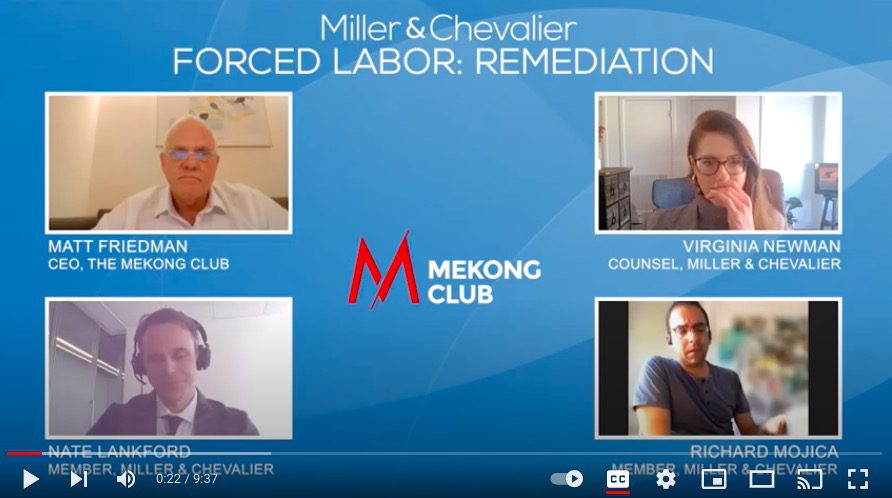
Forced Labor and Remediation: In Conversation with Matt Friedman
More than ever, companies are recognizing the importance of respecting human rights in their own operations and throughout their supply chains, consistent with the United Nations Guiding Principles on Business and Human Rights. Companies are also increasingly aware of the business case for human rights in terms of value creation and risk management, as this area receives greater attention from a broad range of stakeholders, including workers, business partners, investors, the media, and regulators. In the U.S., this focus is clearly evidenced by U.S. Customs and Border Protection’s heightened enforcement of the U.S. law prohibiting the importation of goods made with forced labor, which has resulted in detentions of high numbers of shipments in certain industries and extensive supply chain disruptions.
As noted in our recent article (available here: https://bit.ly/3FJ9A2X), a growing set of industries with supply chains in China are likely to experience enforcement actions and more stringent expectations for anti-forced labor due diligence following President Biden’s recent enactment of the Uyghur Forced Labor Prevention Act (UFLPA). In this context, many companies are asking what they should actually *do* when they discover potential signs of forced labor in their supply chains. We discuss with Matt Friedman, CEO of the Mekong Club (https://themekongclub.org) and a frequent advisor to companies on remediation of forced labor concerns, how companies should proceed when they identify potential concerns of forced labor. 1. Should you work with the supplier to remediate the concerns or terminate the relationship? 2. How do you formulate an action plan for remediation? 3. How do you know whether the steps you’ve taken are sufficient to address the concerns identified? We hope this interview will be helpful for companies seeking to fight forced labor in supply chains and live up to their responsibility to respect human rights.
